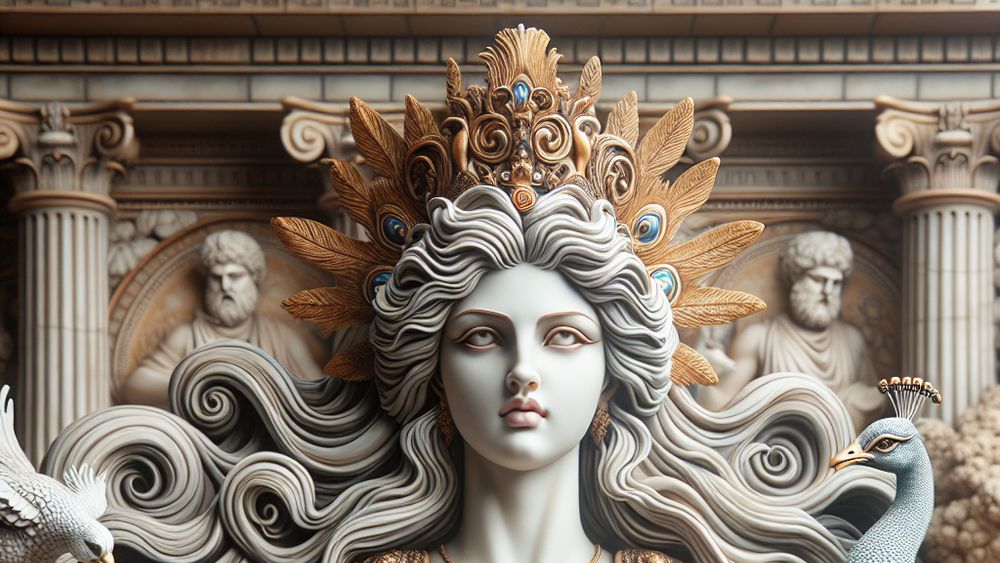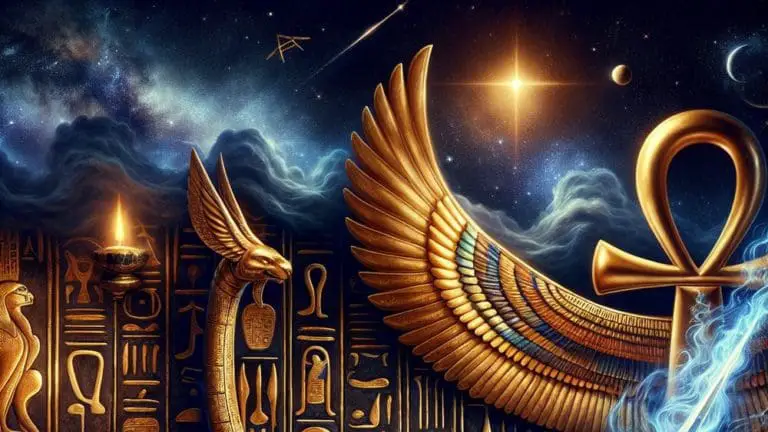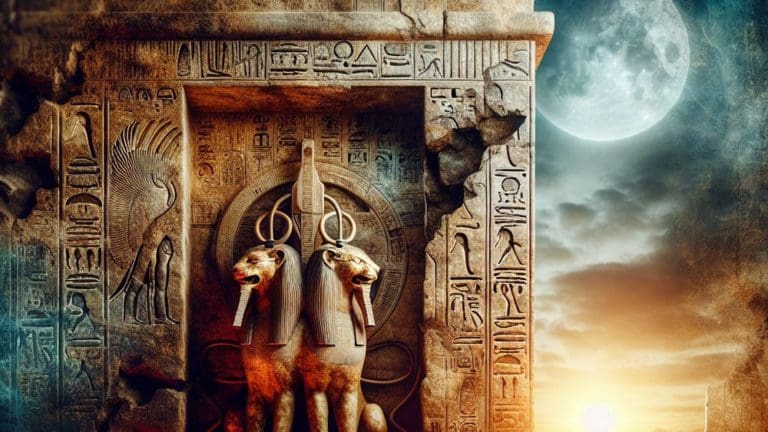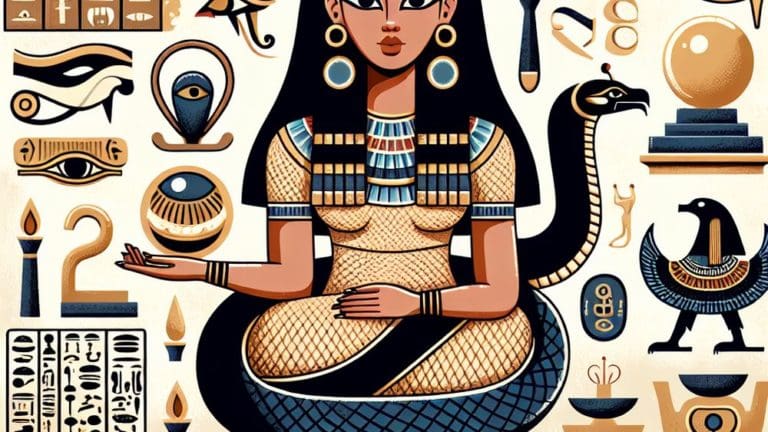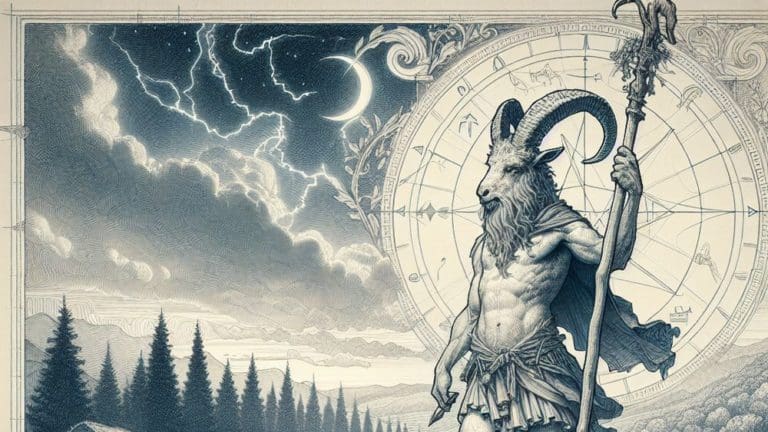Hera: Greek Goddess Of Marriage And Queen Of The Gods
Hera: Greek Goddess Of Marriage And Queen Of The Gods
When we dive into the rich tapestry of Greek mythology, the figure of Hera holds a place of reverence and intrigue. Majestic, yet wrapped in the complexity of her emotions, she reigns as the Queen of the Gods and the goddess of marriage. Her tales are woven with themes of love, jealousy, and the endless intrigues of the gods, making her an emblematic symbol of the ancient Greek pantheon.
Key Points:
- Hera is the Greek goddess of marriage and queen of the gods.
- She is known for her complex relationships, power struggles, and commitment to marriage.
- Hera’s lineage includes being the daughter of Titans Rhea and Cronus.
- Her marriage to Zeus was filled with drama due to his infidelities and her vengeful schemes.
- Hera is the protector of married women, presides over weddings, and guides women through childbirth.
- Symbols of Hera include the peacock, pomegranate, diadem, scepter, cow, and lion.
- Hera’s prominent myths involve her involvement in the Golden Fleece quest, enmity with Heracles, the Judgment of Paris, and Leto’s struggle.
Hera’s story is not just about her royal status or her marriage to Zeus; it’s a saga filled with power, revenge, and her undying commitment to marriage and fidelity. Despite her often contentious relationship with Zeus, Hera’s narrative is compelling, offering a glimpse into the values and beliefs of ancient Greece. Through her eyes, we explore the dynamics of power and the complexities of divine relationships.
The Origins and Family of Hera
Hera’s lineage places her amongst the titans of Greek mythology, firmly establishing her importance in the pantheon and the cultural fabric of ancient Greece. As a daughter of the Titans Rhea and Cronus, her origins are as fascinating as her stories.
The Birth of Hera
The birth of Hera is a tale of resilience and power. Like her siblings, she was swallowed by Cronus who feared a prophecy that he would be overthrown by his children.
- Swallowed at birth, Hera’s start in life was as tumultuous as it gets.
- Rescued by Rhea and Zeus, her journey from a prisoner to a queen begins here.
Hera’s journey from a prisoner to a queen showcases the transformation power of resilience and determination.
Hera’s Parents and Siblings
Hera’s divine lineage is a who’s who in the ancient Greek cosmos. Let’s break it down:
| Parent Name | Role |
|---|---|
| Cronus | Father/Titan |
| Rhea | Mother/Goddess |
And her siblings, well, they’re pretty iconic themselves:

| Sibling Name | Role in Greek Mythology |
|---|---|
| Hestia | Goddess of the Hearth |
| Demeter | Goddess of Harvest |
| Hades | God of the Underworld |
| Poseidon | God of the Sea |
| Zeus | King of the Gods |
Marriage to Zeus
Hera’s marriage to Zeus is, let’s be real, the ancient world’s equivalent of a celebrity power couple.
At first, it was all sneaky advances and rejection. Zeus was into Hera, who wasn’t giving him the time of day. So, what does a god do? He turns himself into a cuckoo bird, and the rest is history.
But don’t get it twisted; their marriage was anything but simple. Sure, they became the ultimate power duo, ruling over Olympus. Yet, their union was constantly rocked by Zeus’s infidelities and Hera’s vengeful schemes. Talk about drama!
The Role and Powers of Hera
Hera’s role in Greek mythology is nothing short of monumental. As the queen of the gods and the goddess of marriage and birth, her influence spans from the heavens to the hearts of humans across ancient Greece.
Hera as the Goddess of Marriage and Birth
Hera, as the Goddess of Marriage, was the divine protector of married women and presided over weddings – kind of a big deal in ancient Greece. She was all about commitment, fidelity, and, well, making sure marriages stick.
In her role as the Goddess of Birth, she didn’t just stop at weddings. Hera was there for women all the way, guiding them through childbirth. She was the go-to deity for married women seeking blessings for their unions and children. So yeah, her hands were pretty full.
Embrace commitment, fidelity, and support in your relationships, just like how Hera, the Goddess of Marriage and Birth, guided women through weddings and childbirth in ancient Greece.
Protector of Women and Patron of Matrimony
Hera, the Greek goddess of marriage, was a beacon of hope for women across Greece. She stood as the ultimate protector, safeguarding the sanctity of marriage and ensuring that the bonds of matrimony were respected. Her role was not just about overseeing weddings but being a guardian to married women, helping them navigate the challenges of matrimony.
Her patronage extended beyond the wedding day, offering support throughout the entirety of a marriage. Hera’s commitment to protecting women manifested in various myths where she intervened on behalf of women, reflecting her dedication to their well-being and marital happiness.
In essence, Hera served as a divine advocate for women, championing their rights and safety within the marriage. This role made her an essential deity for women in ancient Greece, embodying the ideals of marital harmony and fidelity.
Hera’s Powers and Symbols
When we talk about Hera’s powers and symbols, it’s like diving into a treasure trove of mythical awesomeness. As the queen of the gods, her might was unparalleled, governing over marriage and birth, and wielding considerable influence over the heavens and the earth.
- Peacock: her chariot drawn by peacocks symbolizes beauty, pride, and the allure of the goddess.
- Pomegranate: represents fertility, death, and rebirth, echoing Hera’s role in marriage and the continuity of life.
- Diadem: a symbol of her sovereignty, showcasing her status as queen of the gods.
- Scepter: represents her power and authority over the matrimonial and familial aspects of life.
- Cow and Lion: symbols of her nurturing nature and her fierce protection of those under her domain.
Through these symbols, Hera’s dominion and powers were visually represented, each emblematic of her multifaceted roles and her immense influence within the pantheon of Greek gods and goddesses.
Hera’s symbols like the peacock, pomegranate, diadem, scepter, cow, and lion visually represent her immense influence and multifaceted roles within the realm of Greek gods and goddesses.
Hera’s Prominent Myths
Dive into the world of Hera’s myths, and you’ll find a saga filled with drama, vengeance, and divine intervention. Hera, despite being the goddess of marriage, often found herself entangled in tales of jealousy and conflict, particularly with Zeus’s myriad affairs. Yet, these stories are not just tabloid fodder of the gods; they’re rich narratives that showcase Hera’s complexities, her strengths, and sometimes her vindictiveness.
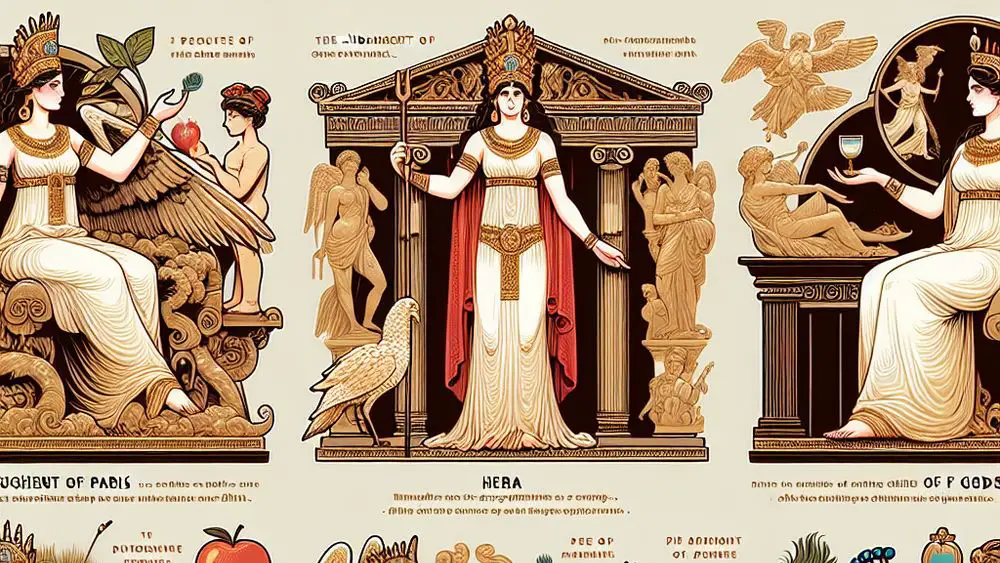
The Golden Fleece and Hera’s Involvement
Hera’s involvement with the quest for the Golden Fleece is a tale of cunning and support. She played a crucial role, favoring Jason and his Argonauts, guiding them through ordeals and ensuring their journey’s success. Her aid was instrumental, marking her engagement in human affairs and her willingness to assist those she favored.
Despite her often tumultuous relationship with Zeus, in this legend, Hera’s actions highlight her as a protector and advisor to heroes. Her intervention in the quest for the Golden Fleece showcases her complexity beyond the jealous wife stereotype, revealing her as a goddess with agency and influence.
Her support was not just divine favoritism. It stemmed from a complex web of motives, revealing her depth as a character in Greek mythology. Hera’s engagement in this myth illustrates her intricate role in the pantheon and the lives of mortals and heroes alike.
Hera’s Enmity with Heracles
Hera’s enmity with Heracles, one of the most famous demigods in Greek mythology, is legendary. Right from his birth, Hera’s jealousy was evident as she sent two serpents to kill him in his crib. Yet, her efforts to thwart Heracles only showcased his strength as he strangled the snakes.
Her vendetta didn’t stop with serpents. Throughout Heracles’ life, Hera was a constant adversary, imposing labors and obstacles in his path. Her opposition was relentless, driven by spite over Zeus’s infidelity, making Heracles’ labors not just a test of his might but a saga of survival against a goddess’ wrath.
In this enmity, we witness Hera’s power and determination, albeit channeled through vengeance. It’s a vivid illustration of her multifaceted nature – as a goddess who can nurture, but also fiercely protect her honor and matrimonial sanctity by challenging those she perceives as threats.
Hera’s relentless vendetta against Heracles exemplifies her power and determination channeled through vengeance.
The Judgment of Paris and Its Consequences
The Judgment of Paris was a pivotal moment, not just for Hera, but for all of Greek mythology. Hera offered Paris power and kingship over all men if he declared her the fairest. This episode underscores Hera’s competitive nature and her desire for recognition and supremacy among the goddesses.
This event led directly to the Trojan War, proving how divine disputes could have catastrophic consequences for mortals. Hera’s involvement in the judgment showcases her assertiveness and her willingness to use promises of power to sway decisions in her favor, directly impacting human history in the process.
Leto and the Birth of Apollo and Artemis
The story of Leto’s pregnancy with Apollo and Artemis adds another layer to Hera’s character. Out of jealousy, Hera barred Leto from giving birth on terra firma. This myth paints Hera in a harsh light, displaying her vindictive side as she sought to punish her husband’s mistress.
Yet, through Leto’s struggle, the birth of Apollo and Artemis became a tale of resilience and ingenuity. It underscores the interconnectedness of the gods and goddesses, reflecting on Hera’s complex relationships with other deities. Despite her antagonism, the arrival of Apollo and Artemis added richness to the pantheon, weaving Hera into the fabric of their stories.
Hera’s vindictive actions towards Leto highlight the complexities of her relationships with other deities and emphasize the resilience and ingenuity displayed during the birth of Apollo and Artemis.
List of All Greek Mythology Gods
Diving into Greek mythology is like opening a pandora’s box of deities, each more fascinating than the last. There’s a whopping array of gods and goddesses overseeing every aspect of ancient life, from the ocean’s depths to the highest mountain peaks. Ready to get the full lineup? Check out this awesome list of all the greek gods that will surely blow your mind. Trust me, it’s no small feat keeping track of them all, but hey, that’s part of the fun!
FAQs
1. What are Hera’s most famous epithets and what do they signify?
Hera’s epithets include “Queen of the Heavens” and “Protector of Marriage,” signifying her status as the supreme goddess of marriage and her role in overseeing the sanctity of marriage and the family.
2. How did Hera’s jealousy affect her relationships with Zeus’s other offspring?
Hera’s jealousy profoundly impacted her relationships with Zeus’s other offspring, often resulting in Hera persecuting those born outside her marriage to Zeus, including going to great lengths to torment or hinder them.
3. In what ways did Hera protect women and marriage?
Hera protected women and marriage by overseeing matrimonial unions, ensuring their sanctity and stability. She was believed to offer assistance to married women, guiding them through childbirth and family life.
4. Can you explain the significance of Hera’s symbols in ancient Greek culture?
The significance of Hera’s symbols in ancient Greek culture is deeply rooted, with the peacock symbolizing her immortal beauty and the cow her nurturing aspect as a mother and protector of marriage and childbirth.
Conclusion
In the realm of Greek mythology, the stories of Hera give us a glimpse into the complexities of divine relationships and the ancient world’s societal norms. She’s not just the goddess of marriage but a symbol of strength, endurance, and the complexities of love – reminding us of the power and passion that shape our own stories. Hera’s narratives are as rich and multifaceted as the tapestry of human experience they mirror, making her a timeless figure in the pantheon of gods and goddesses. Thanks for joining me on this mythological journey – it’s been awesome sharing these tales with you. Until next time, stay curious!
Cheers,
Cedric

